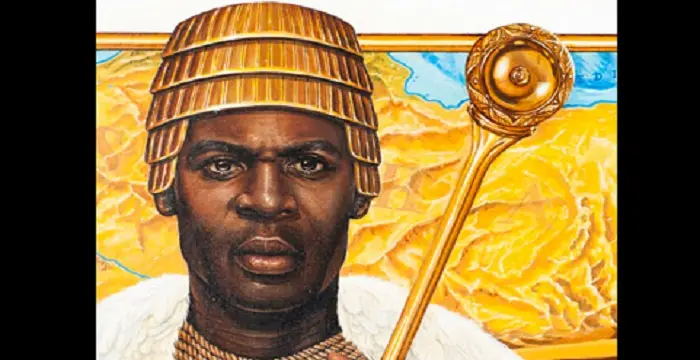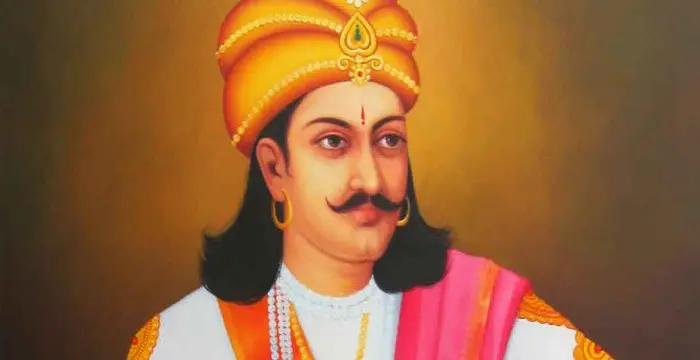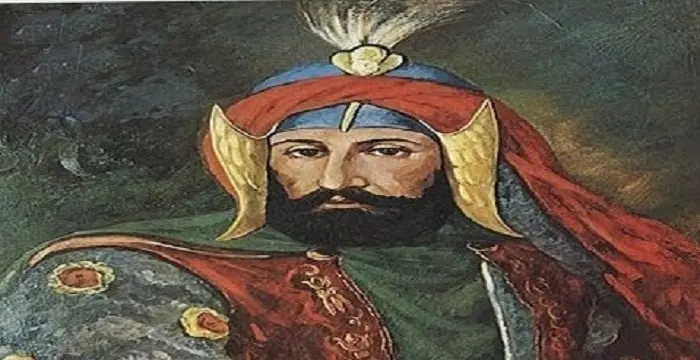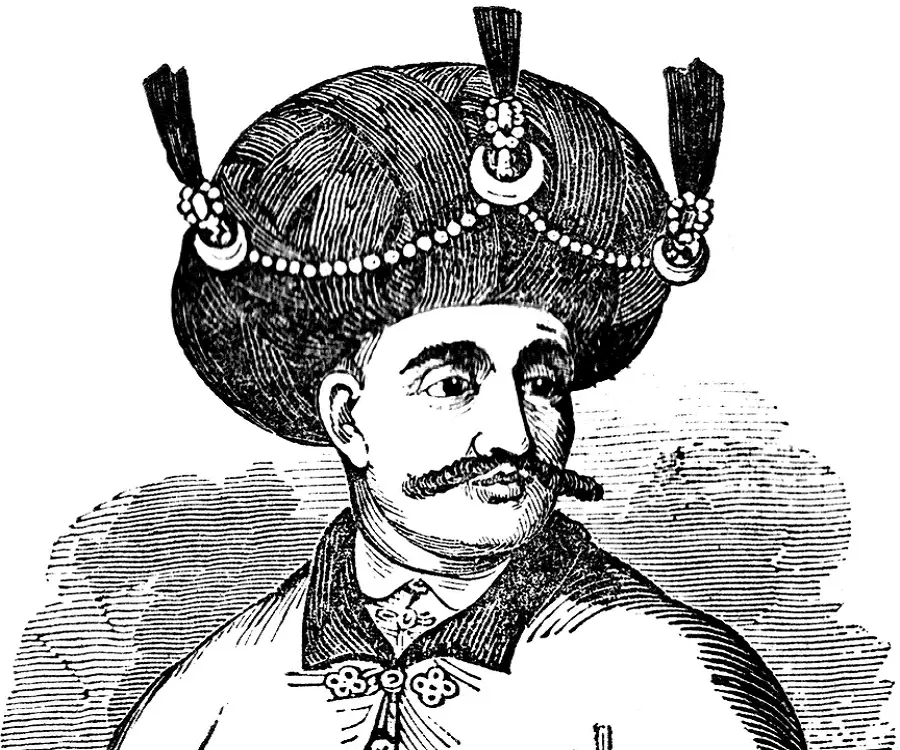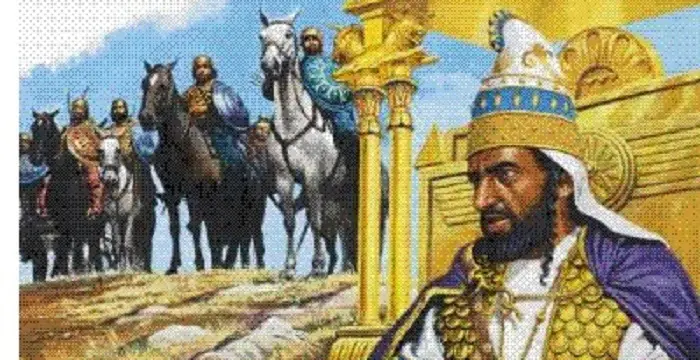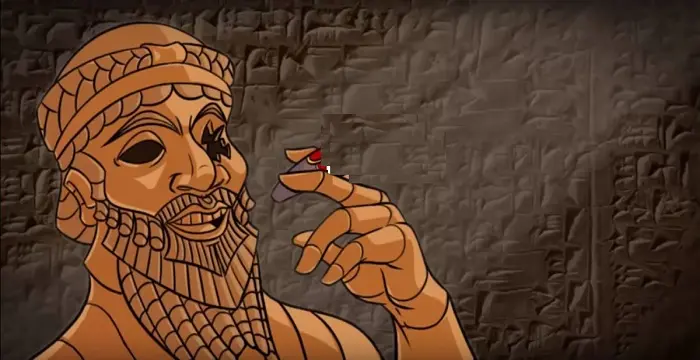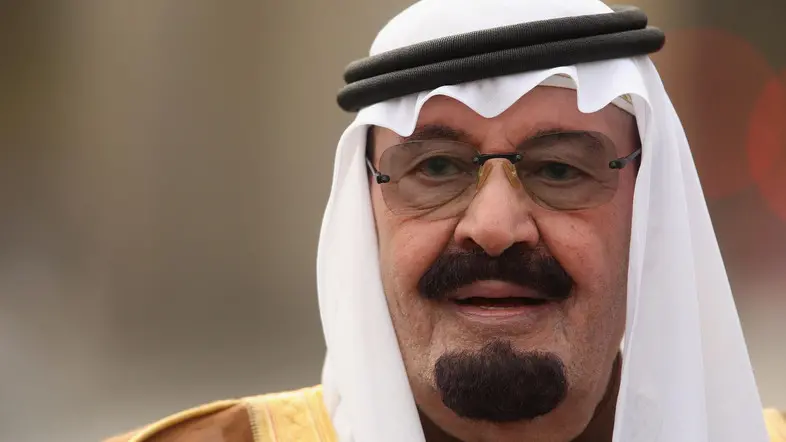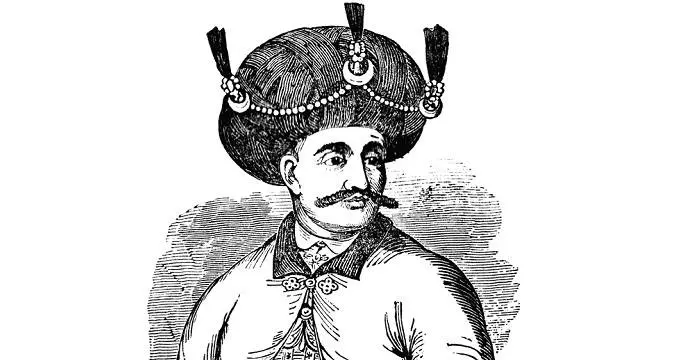
Hyder Ali - Emperors, Birthday and Childhood
Hyder Ali's Personal Details
Hyder Ali was the Muslim ruler of the Kingdom of Mysore in southern India in mid-18th century
| Information | Detail |
|---|---|
| Birthday | 1721 |
| Died on | December 6, 1782 |
| Nationality | Indian |
| Famous | Historical Personalities, Emperors & Kings, Emperors, Kings, Ruler of Mysore |
| Childrens | Tipu Sultan |
| Birth Place | Budikote |
| Religion | Islam |
| Gender | Male |
| Born in | Budikote |
| Famous as | Ruler of Mysore |
| Died at Age | 61 |
// Famous Kings
Sundiata Keita
Sundiata Keita was the founder of the Mali Empire in West Africa. This biography profiles his childhood, early life, struggles, founding of empire, rule, administration, achievements and also gives some fun facts.
Ashoka
Ashoka was the third emperor of the Mauryan Dynasty and ruled almost the entire Indian subcontinent. This biography profiles his childhood, life, reign, achievements and timeline
Murad IV
Murad IV was one of the mighty Sultans in the history of the Ottoman Empire. This biography profiles his childhood, family, accession, rule, administration and timeline.
Hyder Ali's photo
Who is Hyder Ali?
Hyder Ali was the Muslim ruler of the Kingdom of Mysore in southern India in mid-18th century. He proved to be the most formidable force the British encountered in their attempts to gain control in southern India. Born Hyder Naik, he began his military career as a petty officer in the Mysore army attending on the nizam. The assassination of the nizam and the ensuing events enabled the brave and ambitious Hyder Naik to obtain military equipment from the Bombay (Mumbai) government and to form his own army. He proceeded to displace the new ruler of Mysore, and proclaimed himself the de facto ruler of the Kingdom of Mysore. A courageous warrior, he fiercely defended his territories and resisted the military advances of the British East India Company during the First and Second Anglo–Mysore Wars. Known for his administrative acumen and military skills, he entered into an alliance with the French against the British and employed Frenchmen to raise his artillery and arsenal. He is also credited to have introduced the military use of the iron-cased Mysorean rockets. A shrewd leader, he considerably expanded the kingdom of Mysore which was later inherited by his son, Tipu Sultan.
Childhood & Early Life
Hyder Ali is believed to have been born somewhere around 1720; the exact date of his birth is not known. Not much is known about his early life as well. His probable birth place is Budikote, Kolar, Karnataka. His father Fath Muhammad was a military commander at the service of the Wodeyar Rajas of the Kingdom of Mysore.
There are some discrepancies regarding his ancestry also. Some sources state that his grandfather descended from a line of Muslims tracing their lineage back to Persia while others claim he hailed from the area of present-day Afghanistan.
Accession & Reign
After the death of his father, Hyder and his brother Shahbaz entered military service. During his initial years, Hyder was a petty officer in the Mysore army attending on the nizam. The brothers served for a number of years under the rulers of Arcot before moving to Seringapatam, where Hyder's uncle served.
Hyder rose through the military ranks quickly and was soon commanding 100 cavalry and 2,000 infantry, serving under Shahbaz. The longtime Nizam of Hyderabad, Qamar-ud-din Khan, Asaf Jah I, died in 1748 and a bitter struggle of succession followed during which Hyder acquired considerable power as a military leader.
By 1755 he had become so powerful that he commanded 3,000 infantry and 1,500 cavalry. He grew more ambitious with the passing years and displaced the ruler of Mysore to assume control over the princely state himself.
Around 1761, he declared himself the de facto ruler of the Kingdom of Mysore. He then proceeded to conquer Bednore (now Haidarnagar), Kanara, and the petty poligars (feudal chiefs) of southern India.
He founded the Sultanate of Mysore and formally styled himself Sultan Hyder Ali Khan. He then embarked on extensive campaigns to expand his kingdom. He acquired Sira, from the Marathas, and the kingdom of Bednore. Now there were several ports under his control, including Mangalore. He used these ports to establish a small navy.
By the 1760s, British East India Company had become the dominant European colonial power on the Indian east coast. The First Anglo–Mysore War between the Sultanate of Mysore and the East India Company began in 1767. After two years of fierce battles, the British were forced to enter a treaty of mutual defense with Hyder—the Treaty of Madras signed on 29 March 1769.
However, the British failed to keep up their promise when Hyder Ali was engaged in war with the Marathas in 1770. Angered by the British’s refusal to assist him, Hyder negotiated an alliance with the Marathas and the nizam for united action against the British.
This led to the Second Anglo–Mysore War between the Kingdom of Mysore and the British East India Company in 1780. Hyder Ali also solicited the support of the French against the British in this war. He obtained some success in his early campaigns and as the war progressed, the British government sought to end the conflict with Mysore and the war was brought to an end with the signing of the 1784 Treaty of Mangalore. Hyder, however, did not live to see the ending of the war.
Major Battles
In the First Anglo–Mysore War (1767–1769) against the British East India Company, Hyder Ali gained some success, almost capturing Madras. The war eventually ended with the signing of the Treaty of Madras, which contained a clause requiring the British to assist Hyder Ali if he was attacked by his neighbors.
The Second Anglo–Mysore War (1780–1784) was an even bloodier one than the first. Hyder Ali saw some success in the early campaigns. His health suffered considerably over the course of the war and he died in 1782. The war was continued by his successor Tipu Sultan.
Personal Life & Legacy
Many details about Hyder Ali’s personal life are unclear. But it is known that he had at least two wives, though in all probability he might have had more. His second wife was Fakhr-un-nissa, the mother of his successor, Tipu.
Hyder Ali suffered from a cancerous growth on his back and died on 7 December 1782.
// Famous Emperors
Sundiata Keita
Sundiata Keita was the founder of the Mali Empire in West Africa. This biography profiles his childhood, early life, struggles, founding of empire, rule, administration, achievements and also gives some fun facts.
Ashoka
Ashoka was the third emperor of the Mauryan Dynasty and ruled almost the entire Indian subcontinent. This biography profiles his childhood, life, reign, achievements and timeline
Murad IV
Murad IV was one of the mighty Sultans in the history of the Ottoman Empire. This biography profiles his childhood, family, accession, rule, administration and timeline.
Hyder Ali biography timelines
- // 1720Hyder Ali is believed to have been born somewhere around 1720; the exact date of his birth is not known. Not much is known about his early life as well. His probable birth place is Budikote, Kolar, Karnataka. His father Fath Muhammad was a military commander at the service of the Wodeyar Rajas of the Kingdom of Mysore.
- // 1748Hyder rose through the military ranks quickly and was soon commanding 100 cavalry and 2,000 infantry, serving under Shahbaz. The longtime Nizam of Hyderabad, Qamar-ud-din Khan, Asaf Jah I, died in 1748 and a bitter struggle of succession followed during which Hyder acquired considerable power as a military leader.
- // 1755By 1755 he had become so powerful that he commanded 3,000 infantry and 1,500 cavalry. He grew more ambitious with the passing years and displaced the ruler of Mysore to assume control over the princely state himself.
- // 1761Around 1761, he declared himself the de facto ruler of the Kingdom of Mysore. He then proceeded to conquer Bednore (now Haidarnagar), Kanara, and the petty poligars (feudal chiefs) of southern India.
- // 1767 To 29th Mar 1769By the 1760s, British East India Company had become the dominant European colonial power on the Indian east coast. The First Anglo–Mysore War between the Sultanate of Mysore and the East India Company began in 1767. After two years of fierce battles, the British were forced to enter a treaty of mutual defense with Hyder—the Treaty of Madras signed on 29 March 1769.
- // 1767 To 1769In the First Anglo–Mysore War (1767–1769) against the British East India Company, Hyder Ali gained some success, almost capturing Madras. The war eventually ended with the signing of the Treaty of Madras, which contained a clause requiring the British to assist Hyder Ali if he was attacked by his neighbors.
- // 1770However, the British failed to keep up their promise when Hyder Ali was engaged in war with the Marathas in 1770. Angered by the British’s refusal to assist him, Hyder negotiated an alliance with the Marathas and the nizam for united action against the British.
- // 1780 To 1784This led to the Second Anglo–Mysore War between the Kingdom of Mysore and the British East India Company in 1780. Hyder Ali also solicited the support of the French against the British in this war. He obtained some success in his early campaigns and as the war progressed, the British government sought to end the conflict with Mysore and the war was brought to an end with the signing of the 1784 Treaty of Mangalore. Hyder, however, did not live to see the ending of the war.
- // 1780The Second Anglo–Mysore War (1780–1784) was an even bloodier one than the first. Hyder Ali saw some success in the early campaigns. His health suffered considerably over the course of the war and he died in 1782. The war was continued by his successor Tipu Sultan.
- // 7th Dec 1782Hyder Ali suffered from a cancerous growth on his back and died on 7 December 1782.
// Famous Emperors & Kings
Sundiata Keita
Sundiata Keita was the founder of the Mali Empire in West Africa. This biography profiles his childhood, early life, struggles, founding of empire, rule, administration, achievements and also gives some fun facts.
Ashoka
Ashoka was the third emperor of the Mauryan Dynasty and ruled almost the entire Indian subcontinent. This biography profiles his childhood, life, reign, achievements and timeline
Murad IV
Murad IV was one of the mighty Sultans in the history of the Ottoman Empire. This biography profiles his childhood, family, accession, rule, administration and timeline.
Xerxes I
Xerxes I (Xerxes the Great) was the fourth and the most famous king of the Archaemenid dynasty of Persia. This biography profiles his childhood, family, personal life, life history, achievements, campaigns, administration, death and other facts.
Sargon of Akkad
Sargon of Akkad, also called ‘Sargon the Great’, ‘Sarru-Kan’ and ‘Shar-Gani-Sharri’, was the founder and first king of the Akkadian Empire. This biography profiles his childhood, life, rule, administration, timeline, and gives some fun facts.
Abdullah of Saudi Arabia
Abdullah bin Abdulaziz Al Saud was the King of Saudi Arabia from 2005 to 2015 and the third wealthiest head of state in the world. Find more facts about his life, childhood and timeline.
Hyder Ali's FAQ
When was Hyder Ali died?
Hyder Ali was died at 1782-12-06
Where was Hyder Ali died?
Hyder Ali was died in Chittoor
Which age was Hyder Ali died?
Hyder Ali was died at age 61
Where is Hyder Ali's birth place?
Hyder Ali was born in Budikote
What is Hyder Ali nationalities?
Hyder Ali's nationalities is Indian
Who is Hyder Ali childrens?
Hyder Ali's childrens is Tipu Sultan
What is Hyder Ali's religion?
Hyder Ali's religion is Islam
How famous is Hyder Ali?
Hyder Ali is famouse as Ruler of Mysore
